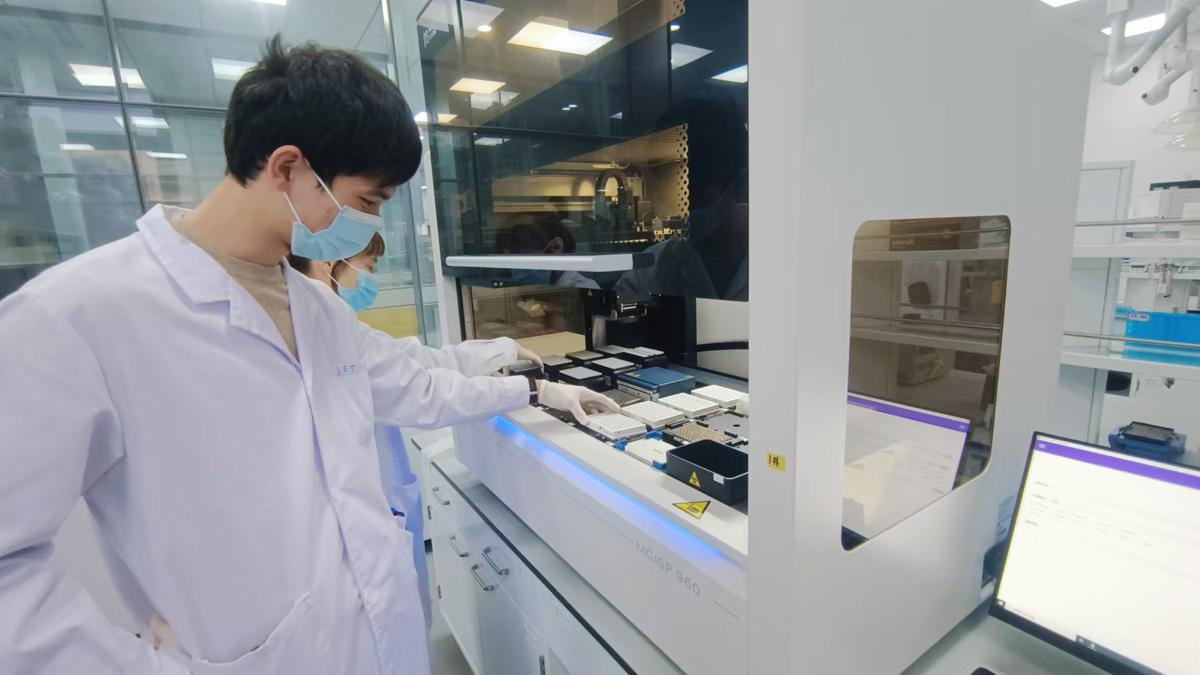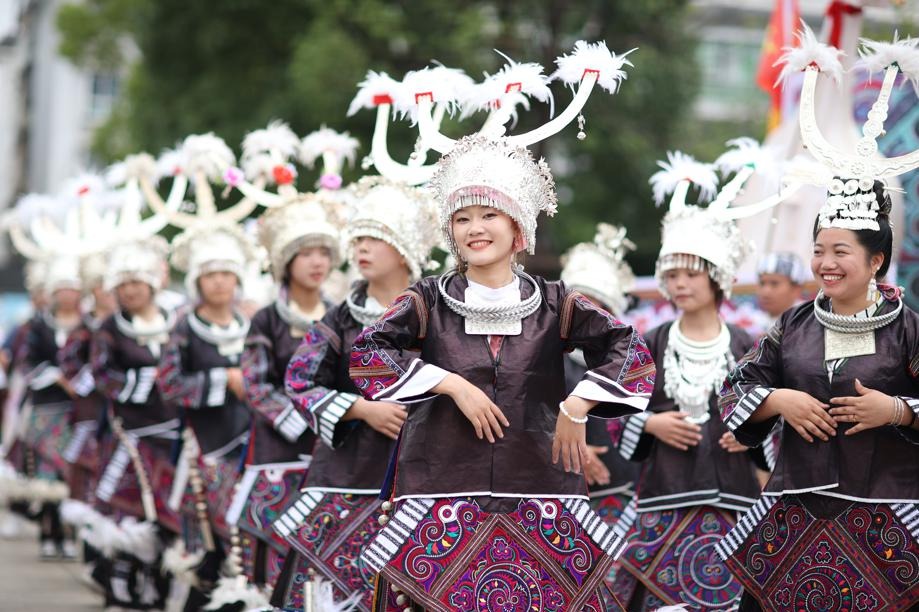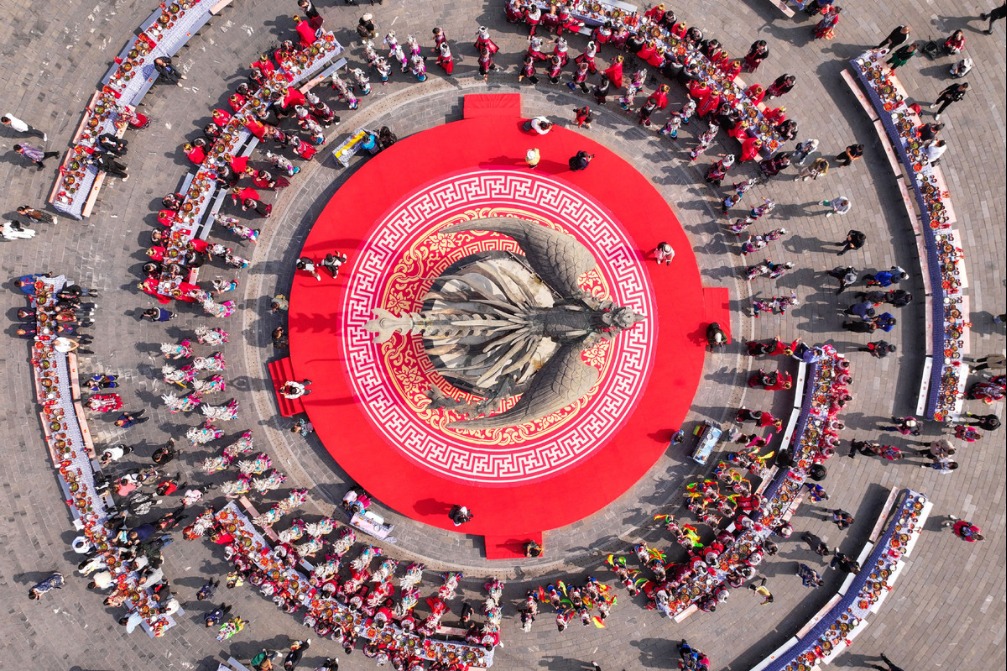ChinaMAP unlocks its biobank


In a landmark announcement at Shanghai Ruijin Hospital on Nov 13, the China Metabolic Analytics Project (ChinaMAP) revealed its decision to unlock its biobank to the world after two decades of accumulation.
"The move, which came ahead of the World Diabetes Day, which falls on Thursday this year, is aimed to raise awareness about diabetes and encourage global cooperation in combating related diseases," said Ning Guang, an academician with the Chinese Academy of Engineering and president of Ruijin Hospital, which is affiliated with Shanghai Jiao Tong University School of Medicine.
ChinaMAP, spearheaded by the Ruijin Hospital-based National Clinical Research Center for Metabolic Diseases in collaboration with a number of research institutions and hospitals nationwide, is a comprehensive cohort study project spanning the country.
Its mission is to gather energy metabolism experts from home and abroad to delve into the mechanisms of energy metabolism and metabolic imbalances leading to diseases, while seeking methods to maintain metabolic homeostasis.
While genomic discoveries in Europe and the United States have led the way in molecular epidemiology; complex diseases; and the identification of genetic mechanisms, markers, and targets, the genetic backgrounds and characteristics of Chinese and western populations differ significantly. Hence, China must have its own genome analysis initiative. That inspired Ruijin Hospital to initiate ChinaMAP based on Chinese natural populations and disease cohorts.
Through five distinct clinical cohorts and population studies, ChinaMAP has established the M-Biobank, a repository of metabolic disease biological samples from a staggering 3 million individuals.
These include 150,000 participants from a national diabetes survey, 200,000 from a national cardiovascular metabolism and malignant tumor cohort study, 2.5 million from the National Metabolic Management Center (MMC), 3,600 from a national adolescent severe obesity cohort study, and 12,000 from a blood pressure target study for adults with type 2 diabetes.
The first phase of ChinaMAP covered 27 provincial-level regions and eight ethnic groups nationwide, having established the most comprehensive genomic database in China to date.
For instance, the national cardiovascular metabolism and malignant tumor cohort study initiated by the Ruijin Hospital's endocrinology team was a multi-center prospective longitudinal follow-up study in natural population. It was aimed at deepening the understanding of risk factors for diabetes, cardiovascular diseases, tumors and all-cause mortality.
The biobank has accumulated impressive omics resources, including those in genomics, proteomics, metabolomics and gut microbiome among others. It has gathered data on over 1,500 diseases and phenotypes, with follow-ups spanning more than a decade.
Given the potential in drug target research derived from the biobank, Ruijin Hospital's endocrinology team said it is actively preparing for transforming drug development outcomes in collaboration with multiple renowned global pharmaceutical companies.
- ChinaMAP unlocks its biobank
- President hails commissioning of deep-ocean drilling vessel
- Looking ahead to 'golden 50 years'
- Xi calls for multi-polar world, inclusive globalization ahead of G20 Summit
- Chinese vice-premier stresses coordinated development of ports
- China's climate envoy stresses developed countries' obligation to provide post-2025 climate finance




































